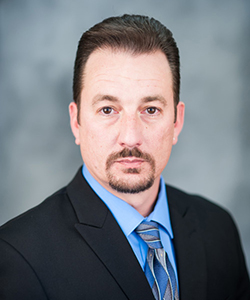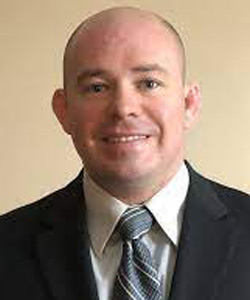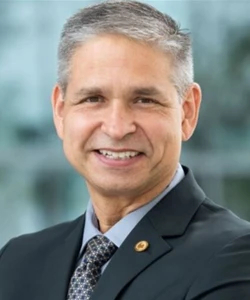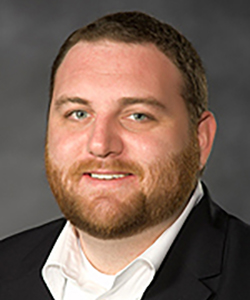UCF’s Department of Criminal Justice is home to an accomplished group of scholars whose research is shaping the future of the discipline. Our faculty are nationally recognized across areas including police-community relations, officer training and use of force, corrections in both institutional and community settings, juvenile justice, mental health intervention, reentry and recovery, and the complex causes and consequences of crime and victimization. Their leadership in these areas is one reason U.S. News & World Report ranks UCF’s online graduate criminal justice program #12 in the nation, recognizing faculty expertise and the impact of their research on both scholarship and practice.
Research Areas
Whether you’re an undergraduate eager to launch a career in public service, or a doctoral student ready to contribute new insights to the field, you’ll have the opportunity to learn alongside top-tier scholars. Our faculty are active researchers and mentors who bring their findings into the classroom, offering students firsthand perspectives in criminal justice. From exploring the psychological roots of offending to evaluating programs that reduce recidivism, students are engaged in meaningful research that prepares them for careers in law enforcement, corrections, policy, social services and academia.
Several of our faculty also serve as editors of prominent academic journals — an honor that signals national leadership in the field and reflects the academic rigor of UCF’s criminal justice program.
Whether you're drawn to the frontline challenges of criminal justice practice or the analytical depths of academic research, UCF offers the opportunity to work with leading experts who are shaping the future of justice in the U.S. and beyond.
Policing
- Officer Training/Police Strategies
- Police Culture
- Police Use of Force
- Police-Community Relations
- Procedural Justice
Faculty Researchers
Corrections
- Community Settings
- Institutional Settings
- Procedural Justice
- Program Evaluation
- Recovery/Reentry
Faculty Researchers
Juvenile Justice
- Correlates of Juvenile Outcomes
- Juvenile Court Processing
- Mental Health Prevention and Intervention
- Personality and Offending
- Risk and Need Assessment
Faculty Researchers
- Correlates of Crime
- Delinquency
- Mental Health/Psychopathy & Crime
- Victimization
- Wildlife/Environmental Crime
Faculty Researchers
-

Michael Caudy, Ph.D.
Associate Professor -

Stephen Holmes, Ph.D.
Associate Professor -

Karol Lucken, Ph.D.
Associate Professor -
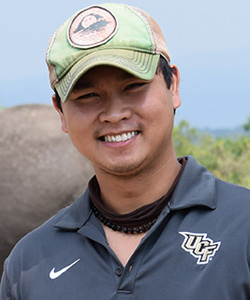
William Moreto, Ph.D.
Associate Professor and Graduate Director -

Matt Nobles, Ph.D.
Professor -

Lee Ross, Ph.D.
Professor -

Jill Viglione, Ph.D.
Associate Professor -

Cory Watkins, Ph.D.
Associate Professor -
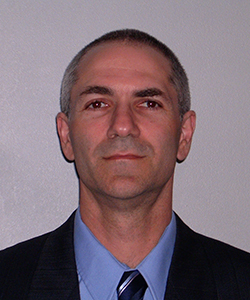
Mark Winton, Ph.D.
Senior Lecturer
What We’re Investigating
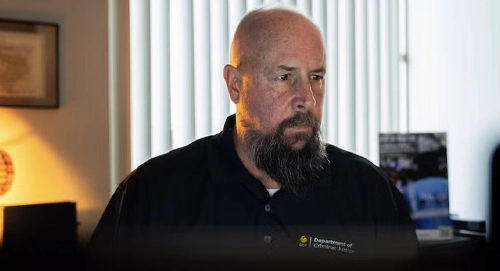
"Interagency operability involves various agencies collaborating to improve information-sharing infrastructures for data and information...that lead to more secure neighborhoods, communities and regions.”
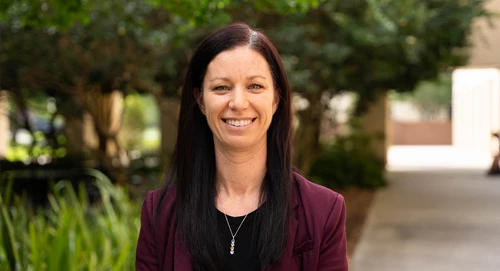
"My research focuses on preparing officers to properly identify mental health needs and crises and ensuring that the right resources are available to them."
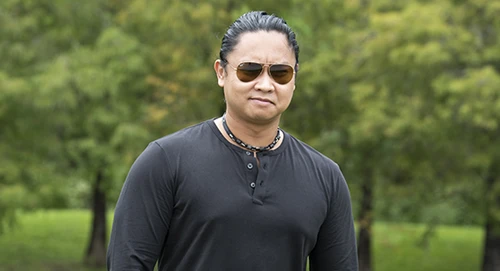
“When looking at conservation, you really have to consider the human factors. We need to understand how certain factors like job stress, job satisfaction and safety impact enforcement.”
Student Research
Criminal justice majors who engage in research gain valuable skills in data analysis, collaboration and presenting findings. Practice in these areas will serve you well in your future as a leader in law enforcement, policy, legal fields and more. The Department of Criminal Justice is committed to providing students with hands-on research opportunities, both locally in Central Florida and on a global scale, guided by expert faculty at the forefront of their fields.
Graduate and Postdoctoral Researchers
Graduate students and postdoctoral researchers in criminal justice have the chance to work alongside experts on innovative research. Whether you're refining your research skills or tackling complex issues in the field, you’ll find opportunities to collaborate and contribute. Want to get involved? Connect with your graduate advisor or director to learn more!
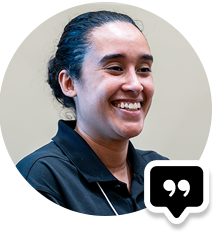
"Being a criminal justice graduate research associate has opened doors for me to collaborate with faculty and staff from over 10 universities and across disciplines ranging from criminal justice and social work to psychology, sociology and medicine. Research isn’t something you do in a vacuum. It takes a multidisciplinary team to create real change in criminal justice and social services."
Krystle Roman, Criminal Justice Ph.D. candidate
Honors Undergraduate Thesis Program
Are you an undergraduate criminal justice student looking to challenge yourself, build your credentials and stand out in your field? If so, the Honors Undergraduate Thesis (HUT) Program in Criminal Justice is a chance for juniors and seniors to conduct original research and work closely with faculty mentors.
Why Participate?
- Gain Hands-On Research Experience: Design and conduct an honors thesis or project in an area you’re passionate about alongside a faculty committee.
- Boost Your Graduate or Law School Applications: Demonstrating research skills, and writing and defending a thesis sets you apart.
- Earn Prestigious Recognition: Graduate with “Honors in Criminal Justice” on your diploma and transcript.
- Get Published: Your final thesis will be included in the UCF Library.

"Undergraduate research lets students explore pressing issues in local communities and beyond, gain practical experience, and open doors for graduate or law school, career opportunities, and long-term impact in the field of criminal justice. Whether completing an Honors Undergraduate Thesis or collaborating with faculty on active research projects, students receive close mentorship as they engage in meaningful research that addresses real-world challenges and help shape their academic and professional futures."
Jennifer Peck, Ph.D., Associate Professor
Scholarships
A limited number of competitive scholarships are available for students pursuing an Honors Undergraduate Thesis. Students are encouraged to contact Jennifer Peck, program coordinator, concerning the application process and deadline.
Get Started
Interested? Contact Honors Undergraduate Thesis Program Coordinator Jennifer Peck for more information on eligibility, application deadlines and how to apply.
Partnerships
Meaningful partnerships are essential to preparing the next generation of criminal justice professionals and scholars. Our internship site partners play a critical role in student success by offering high-impact, hands-on experiences that connect classroom learning with real-world application. From law enforcement agencies and correctional facilities to advocacy organizations and legal offices, these immersive placements help students develop professional skills, build networks and gain the confidence to lead in the field.
Our research partnerships are just as vital — enabling faculty and students to collaborate with agencies and organizations to generate insights that improve policy and practice. Whether it’s evaluating the effectiveness of new policing strategies, supporting reentry initiatives, or studying patterns in juvenile justice, these collaborations lead to data-driven solutions.
We’re always looking to expand our network of collaborators. If you’re interested in exploring partnership opportunities, we’d love to hear from you.


